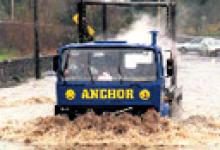Burma, Blogging and Creedon
This column has never been all that enthusiastic about the impact, real or potential, of blogging. More often than not I'm the old fart who reckons it's like talking to oneself without the exciting frisson of insanity, and I have only occasionally seen blogs on political matters that don't end up replicating or at least relying upon the same old mainstream sources.




